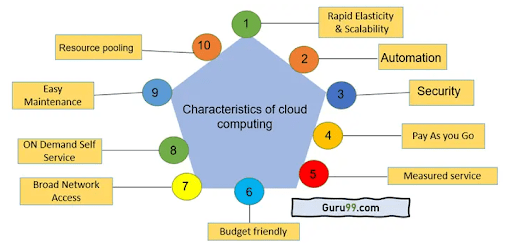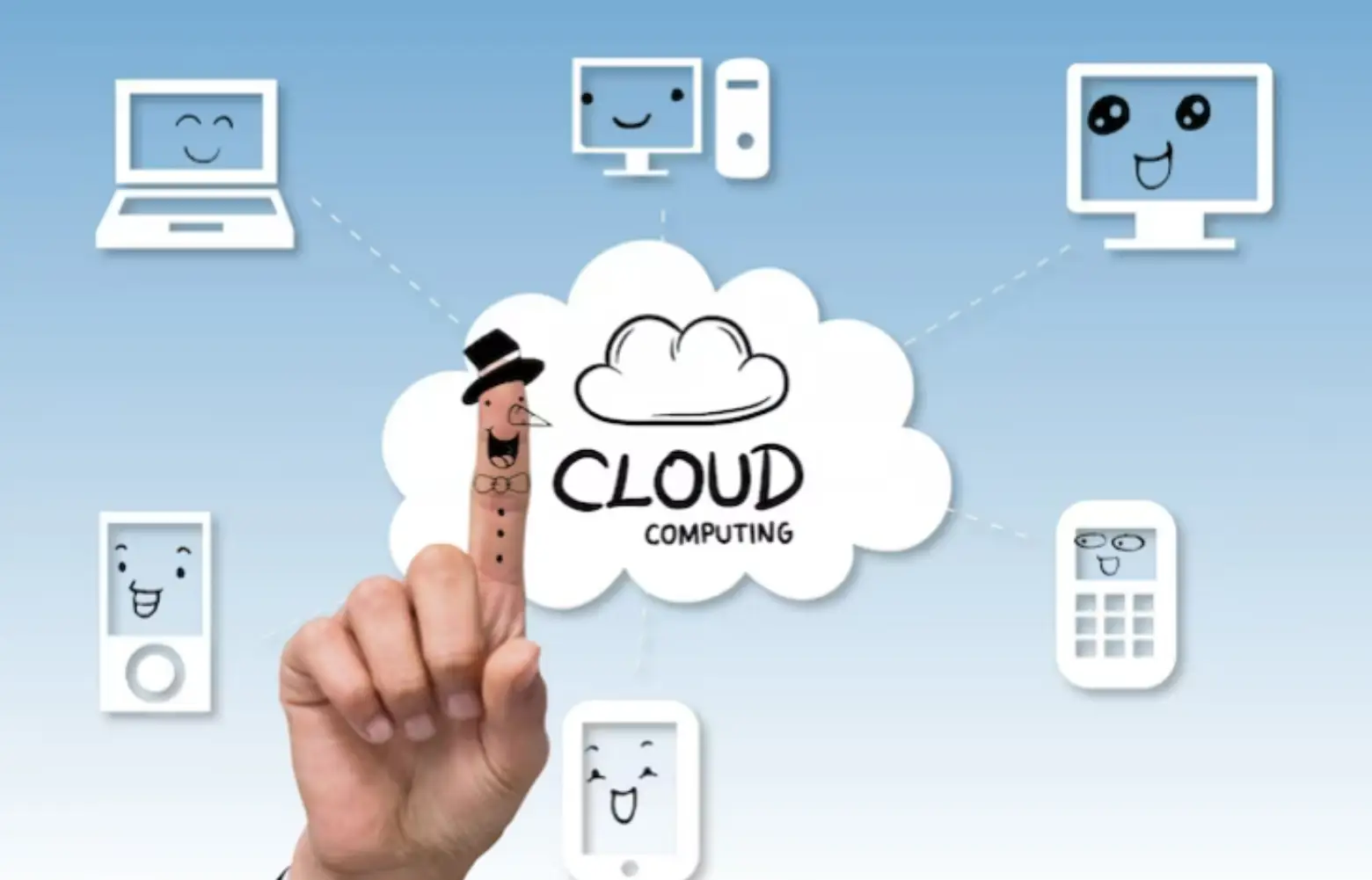Cloud computing is a type of internet-based computing that allows users to access their data and software over the internet, regardless of their location. It provides many benefits for businesses, including lower costs and more scalability. Lets see the numerous characteristics of Cloud Computing that’s makes it one of the fastest-growing industries at present.
What is Cloud Computing?
It’s more than just a buzzword. It’s an actual shift in computing. Over the last decade or so, we’ve seen the trend towards using more software as a service (or SaaS). For some of us, this doesn’t seem like anything new. But it’s more than just swapping point and click for push-button and enter. Cloud computing is a movement that has many people shifting workloads, storage, and applications to external, shared technologies run by vendors with a dedicated team of experts. Herovired offers an amazing Cloud Engineering Course for many to learn and ace cloud computing.
Importance of Cloud Computing
Cloud computing is already revolutionising the way we do business, and it’s only going to get bigger. The cloud allows you to access your data and applications from any device, online or offline, without having to worry about managing your own servers or storage.
Characteristics of cloud computing include allowing you to scale up or down as needed, which means if you have an unexpected surge in traffic or customers, your infrastructure will be ready for it. And if you need less capacity than usual at one point during the year, you don’t have to pay for extra space when there’s no demand for it.
Key Characteristics of Cloud Computing
Cloud computing is a revolutionary and complex way of building, deploying, and managing IT infrastructures. There are basically 10 essential characteristics of Cloud Computing.
1. On-Demand Self-Services
On-demand self-service means that you can start using your chosen cloud service whenever you need it. You don’t have to wait for someone else to make it available or set up the right equipment for you—you just log in and get started right away.
2. Broad Network Access
Broad network access means that cloud services are accessible from anywhere in the world via the internet. This means that you don’t have to worry about working remotely—you can simply log into your account from wherever there’s an internet connection! These fundamental characteristics of Cloud Computing also enable them to upload data to the cloud from anywhere.
3. Rapid Elasticity
Rapid elasticity refers to the ability of a cloud service provider (CSP) like Amazon Web Services (AWS) or Microsoft Azure to add more capacity. The ability to quickly scale up and down capacity is perhaps the most important characteristic of cloud computing. Because the cloud provider owns the hardware, they can adjust resources as needed to accommodate peak loads.
4. Resource Pooling
Resource pooling is one of the essential characteristics of Cloud Computing. By pooling resources across multiple users and applications, cloud computing can be more cost-effective than traditional IT systems. This resource pooling also makes it easier to scale up or down resources, which helps businesses respond quickly to changes in demand without having to invest in new hardware or software.
5. Measured Service
This is a characteristic of cloud computing that refers to the ability to pay for only what you use. You are billed for the resources you have used, rather than paying for your entire infrastructure based on capacity.
6. Multi-Tenancy
One of the best characteristics of Cloud Computing is Multi Tenancy. Multi-tenancy refers to the fact that multiple customers share the same physical infrastructure. This means that different companies’ data is stored separately, but they all have access to the same services.
7. Virtualization
The ability to run multiple operating systems on a single server. This can be done by using virtual machines, which are software that allows you to run an entire operating system on a single machine.
8. Resiliency and Availability
The ability for your data to be resilient in the event of a failure or to be available when it’s needed. This can be accomplished through redundancy and failover features.
9. Security
Data security is one of the best characteristics of Cloud Computing. Cloud computing features provide security by using multiple layers of protection, including firewalls, encryption, and identity management systems. It provides enhanced security for your business data and applications by leveraging standard practises in information security.
10. Pay-Per-Use Pricing
You can use resources as you need them instead of paying for storage space that may go unused. This is one of the many effective cloud computing features. To know more about cloud computing career, cloud-vs-devops-what-to-know-for-your-next-career-move is useful.

What are the Benefits of Cloud Computing?
To summarize, these characteristics of cloud computing offer the following benefits:
- Cloud computing allows for the storage of information on remote servers instead of on your personal computer. This means you can access your files and data from anywhere at any time.
- The main advantage of using cloud computing is that you don’t have to worry about having enough storage space or dealing with hardware failures. In addition, there’s no need to worry about backing up your data because it will always be available.
- Cloud storage is much cheaper than traditional hard drives because there’s no need for high-quality hardware or physical space, which is one of the best cloud computing features.
How Cloud Computing is Beneficial for Business?
Cloud computing is a form of IT infrastructure built on the internet. Cloud computing characteristic allow businesses to store and access their data remotely, using the same tools they would use to access other cloud-based services like Gmail or Dropbox. It’s effective in helping reduce hardware costs since they’re not investing in expensive storage solutions or servers.

Top Cloud Companies in India
The numerous characteristics of cloud computing make it a popular choice among various organizations across industries. With the cloud growing in popularity, it’s no surprise that new companies are popping up to meet demand. But with so many options, how do you know which one is right for you?
Here are some of the top cloud computing companies in India for your business.
- Google: Google is one of the top cloud companies in India because it offers services like G Suite, which includes Google Docs and Gmail, along with other business tools.
- AWS: AWS provides a wide range of products and services for enterprises, startups, and government agencies.
- Microsoft Azure: It offers a full range of cloud computing services, from infrastructure to software development.
- IBM Cloud: This provides an extensive set of on-demand cloud solutions for businesses and governments.
- Oracle Cloud: Oracle’s cloud platform offers developers an easy way to build applications on top of their technology stack.
You wish to make a career in cloud computing; here’s a guide with the top-skills-you-need-for-a-career-in-cloud-computing.
Conclusion
Here we have briefly discussed different characteristics of cloud computing and its benefits. Cloud computing can be anything, from a collaborative project to an online application. The best cloud computing characteristic is that you have it when you need it, no matter your location or device type.
